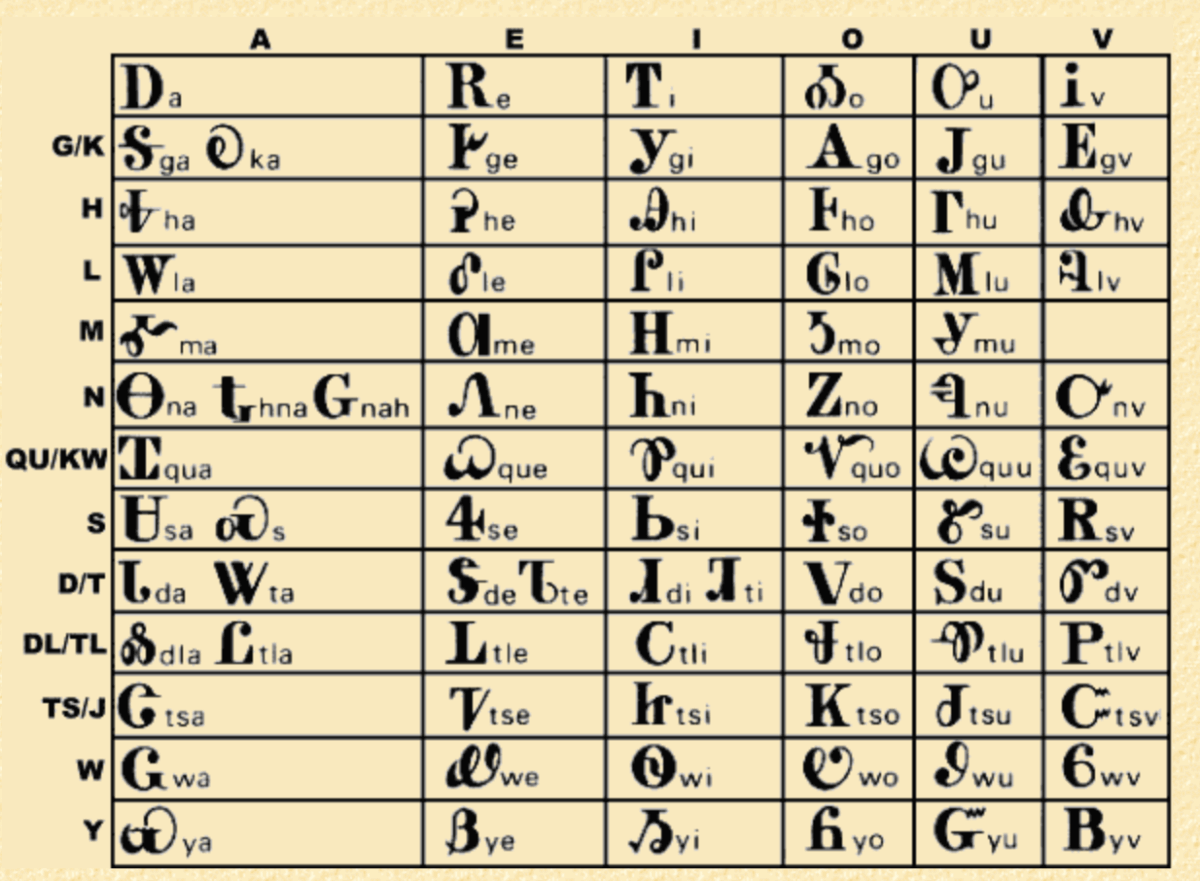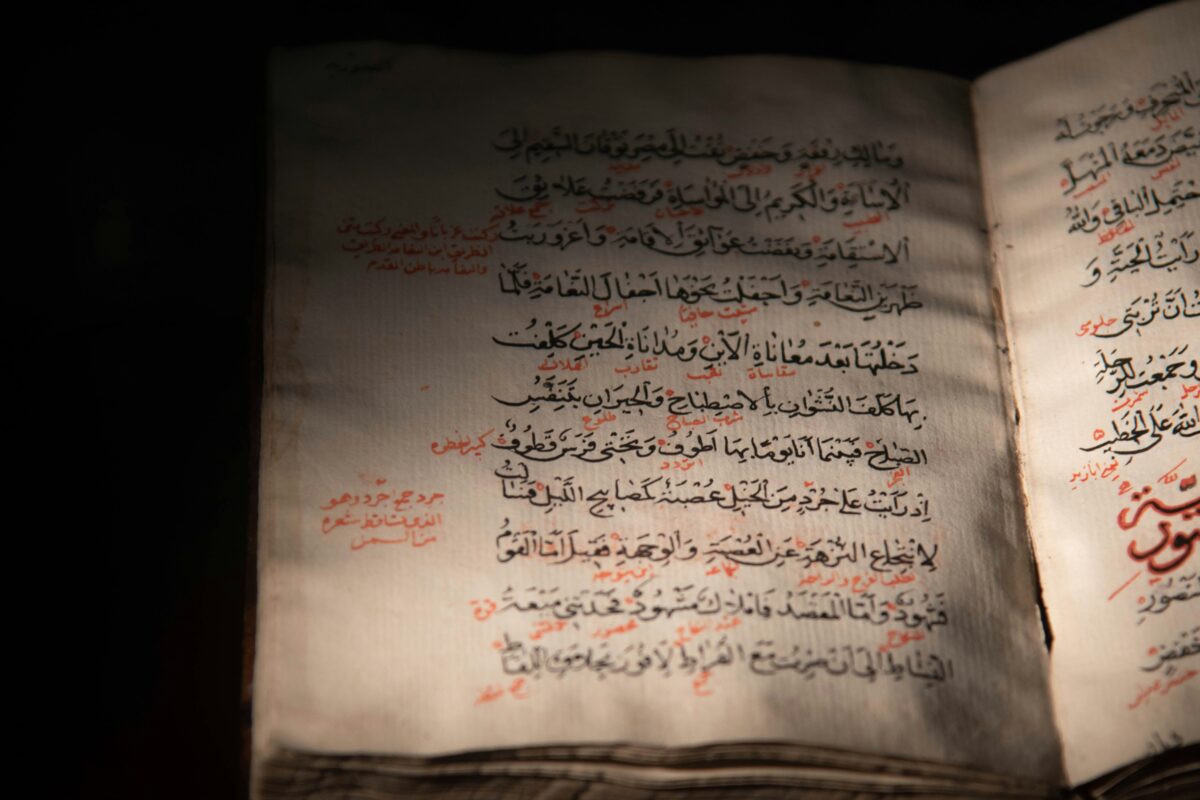There are only a few recorded instances in history of an individual member of a pre-literate society creating an original writing system from scratch. One is the example of Sequoyah, a Cherokee man impressed by the concept of rendering speech in written form, which he first encountered through contact with European settlers. Seeing that their ability to write gave white settlers an advantage over the Cherokee, Sequoyah decided to right this imbalance.
While many pre-literate societies become literate in their own language by adopting an existing writing system – for instance, the Roman alphabet – Sequoyah developed his own, which he finalised in 1821.
Having toyed with pictographs at first, Sequoyah ultimately developed a symbol for each syllable in the Cherokee language. Using printed materials as a reference, including the Bible, he developed a syllabary of 85 symbols, many of them adapted from English, Greek and Hebrew letters – but representing completely different sounds.
Initially, Sequoyah’s work aroused suspicion and he was arrested by Cherokee authorities, but when they saw how he could use writing to communicate with his daughter, whom he had taught how to read, the Cherokee people became enthusiastic about the new writing system. Literacy spread rapidly among the Cherokee, with up to 100% of them literate by around 1846; a higher rate than among Europeans settling in North America in the same time period.
Sequoyah’s work would influence many others around the world. It is believed, for example, that when a literate Cherokee emigrated to Liberia, he inspired speakers of Bassa to develop their own syllabary, and several other West African cultures did likewise.
Photo Source: https://www.native-languages.org/cherokee_alphabet.htm




